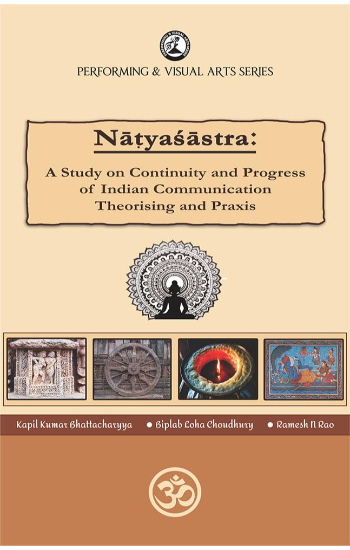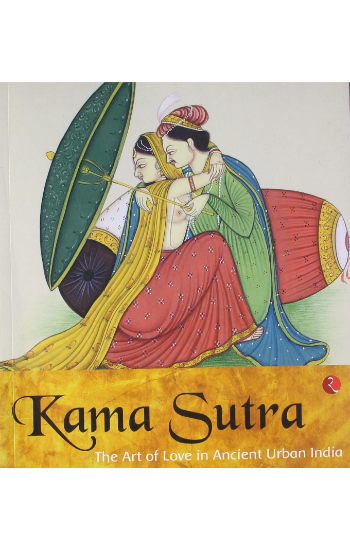Kapil Kumar Bhattacharyya Kapil Kumar Bhattacharyya is an Assistant Professor in the Department of Journalism and Mass Communication at The Bhawanipur Education Society College, Kolkata, India. Having majored in English Literature from the Ramakrishna Mission Residential College, Narendrapur under Calcutta University, he did his Masters in Mass Communication from the University of Burdwan. Having qualified the National Eligibility Test for both Junior Research Fellowship and Lectureship in Journalism and Mass Communication, he went on to complete his Ph.D. on the ancient Indian text, the Nātyaśāstra, from Visva-Bharati, Santiniketan, India. Upon completion of his Ph.D. as a UGC research fellow (JRF & SRF), he also briefly taught at Visva- Bharati, Santiniketan, India as a guest teacher. His current research interests include Ancient Indian Communication Thought, Ancient Indian Research Thought, Communication Education and Applied Communication Studies. His long- term research vision is to exhaustively explore the possibilities of holistic integration of ancient Indian communication and research thoughts available in various ancient Indian texts in their contemporary relevance. So far, he has initiated exploration of such texts from a few of the ancient Indian philosophical schools as also the Vedas and the Upanisads. His research vision is in line with his firm belief in the potential of India's indigenous knowledge in positioning Her at the global centre-stage of modern communication theory and practice studies in the new millennium. Having spent his childhood years in the mountains (Arunachal Pradesh), he is deeply attached to nature. He is also an avid reader and loves listening to Indian country music. Ramesh N. Rao is a Professor in the Department of Communication at Columbus State University. He has taught for more than 35 years in the United States. He arrived as a graduate student in September 1985 in Hattiesburg, MS, where he earned an MS in Mass Communication at the University of Southern Mississippi. He then moved to East Lansing, MI, to earn a Ph.D. in Communication from Michigan State University (where he began teaching in 1987). Ramesh Rao has taught at Truman State University in Kirksville, MO, and at Longwood University in Farmville, VA. He now teaches at Columbus State University where he has served as Chair of the DN3 Program and as the Graduate Studies Coordinator in the Department of Communication. Before coming to the US, he earned a BA from the University of Bangalore, and worked as a bank officer, a schoolteacher, and a copy editor. He has written/co-authored/edited more than half a dozen books on Indian politics, culture, and society. He has co-authored two books on Intercultural Communication: "Intercultural Communication: The Indian Context," and "Communicating Across Boundaries: The Indian Way". He has taught a wide variety of communication courses -- from public speaking to mass media law, and from persuasion to intercultural communication. He loves to listen to Indian classical music, read fiction, and play tennis. He lives with his wife, Sujaya in Fortson, GA, and their son, Sudhanva, is completing his undergraduate studies at the University of Georgia. Biplab Loha Choudhury is Professor of Journalism and Mass Communication in Visva-Bharati, Santiniketan, India. His university teaching and research experience is of more than twenty-five years. Over the years, he has worked in various administrative and academic capacities such as ICDS Project Officer (1990-1996), superintendent of observation home, journalist in two English dailies, lecturer in Assam University Silchar (1996-2005), and as faculty (since 2005) in Visva-Bharati, Santiniketan. He worked as the Principal Investigator and Project Coordinator in Assam University Rural Communication Project (1998-2001), Media Convener in Assam University (2000-2005), and consultant to tea sec- tor and NGOs in Communication and project management. He received trainings in communication, health, women & child development, and correctional administration. He is a trainer in health and development communication, imparting training to health and ICDS officers on several occasions. He has visited many countries such as China, Thailan, UAE and Germany for academic work including presenting papers, giving key note address, chairing sessions, field visit and making critique. He has authored many research papers and books on media organization management, development communication and new media. His current research interest spans audience-creator matchmaking, developing com- munity from within, Indian communication and research traditions, and policy reviewing. He is the first Chairman of the Nation Communication Congress (India) and the Editor- in-Chief of the International Journal of Peace Education and Development. A firm believer in the teachings of Sree Sree Thakur Anukulchandra, he takes a keen interest in efforts towards social development of people at grassroot level.






Reviews
Clear filtersThere are no reviews yet.